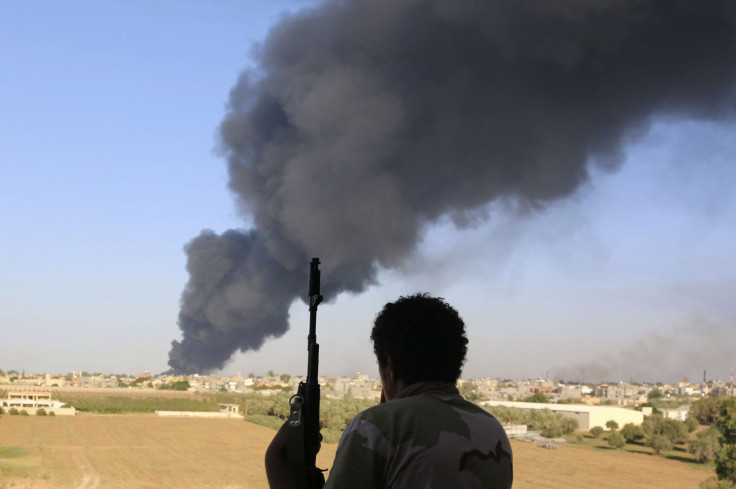Libyan Army, Hifter Forces Poised To Launch Attack On Tripoli, Take Back Capital

Islamist militias in Libya are gaining ground in the eastern part of the country, but the internationally recognized government is taking new steps to take back control of the land it has lost in recent months. Libya's House of Representatives declared a formal alliance with rebel Gen. Khalifa Hifter's forces Tuesday and said it would launch an offensive to retake Tripoli, which Islamist militias gained control of in August.
It is not known how many troops Hifter leads, but his forces are said to own heavy weaponry and aircraft that could help the government fight Islamist militias.
Now that Hifter and his forces are officially part of the army, they could receive the same training and support as Libyan military soldiers. The U.K., Italy and Turkey are currently helping Libya's military as part of an agreement to train general-purpose forces. The U.S. is also set to begin training the Libyan army, but officials at the State Department have said that no contract has been signed. In a January press release, the U.S. Defense Security Cooperation Agency said it notified Congress of a possible foreign military sale to Libya for training and equipment, parts and logistical support worth $600 million.
In a statement released by Prime Minister Abdullah al Thinni, the Libyan army was given orders to "advance toward Tripoli and liberate it."
Libyan Government statement regarding the army entering #Tripoli. #Libya pic.twitter.com/LTFBAjtC4y
— Alwasat (@alwasatengnews) October 21, 2014The statement called on youth to join the army to help take back the capital and asked government supporters to hand over captured militiamen.
Tuesday's statement indicates that Libya is sliding further into all-out civil war. Three years ago on Monday, Libyan dictator Moammar Gadhafi was captured and killed by a rebel militia in his hometown of Sirte, an event that was supposed to mark the beginning of a new, democratic era in the country. But today, Libya is far from stable.
Over the last several days the Libyan army, with the support of Hifter's forces, has been battling militias in Benghazi. Several soldiers and dozens of civilians have been reported killed.
If this summer's violence is any indication, the battle for Tripoli will most likely be one of the fiercest fights in the country since the 2011 revolution. In August, rival militias battled for weeks at the airport there, vying for complete control of the city. In the end, militias fighting under the umbrella of Libyan Dawn took control of state buildings and ministries, and forced al Thinni'as government and the parliament to relocate to Tobruk.
As of Tuesday afternoon there were no reports of fighting between the army and Islamist militias, but several citizens on social media said electricity had been shut off.
© Copyright IBTimes 2025. All rights reserved.




















